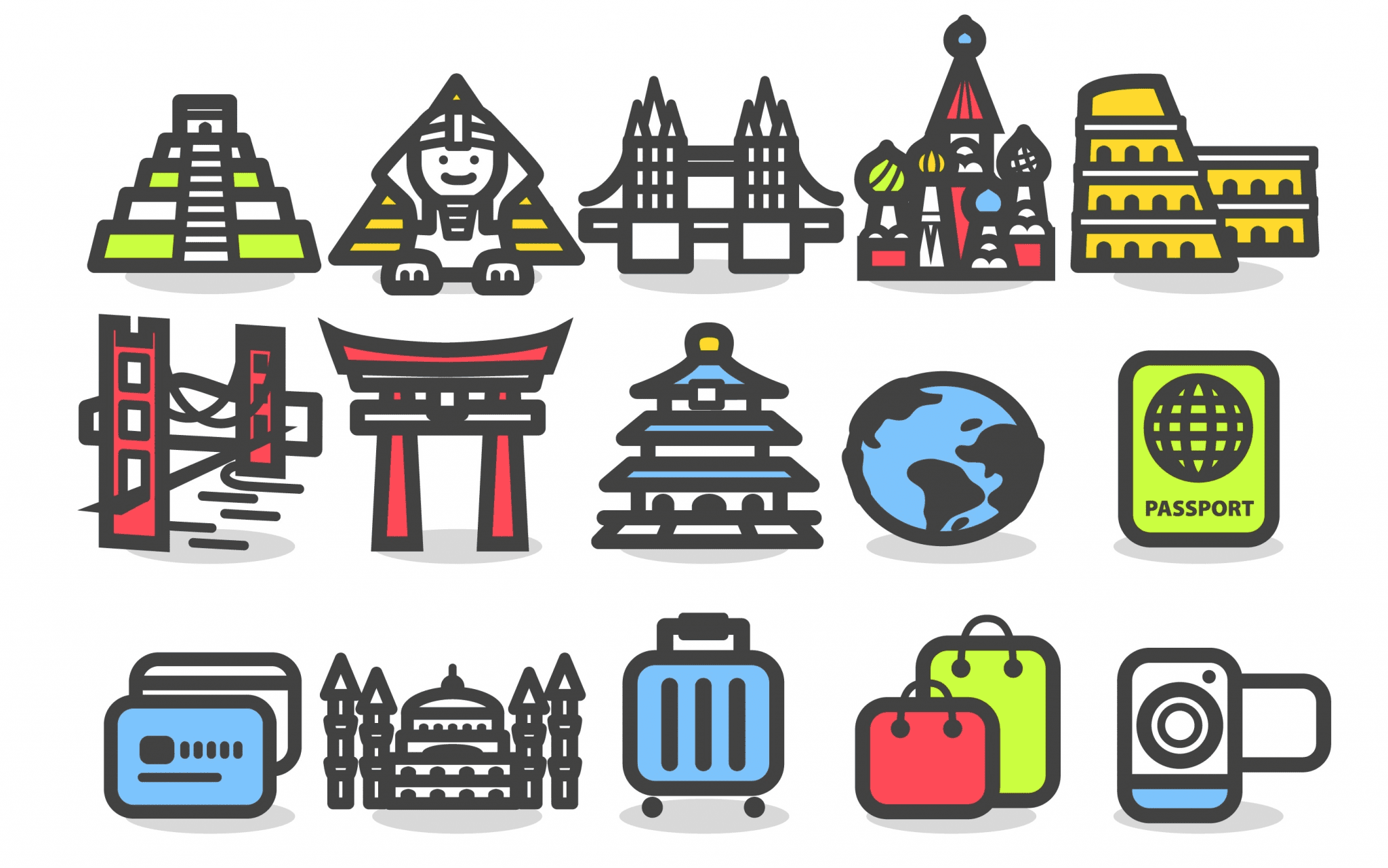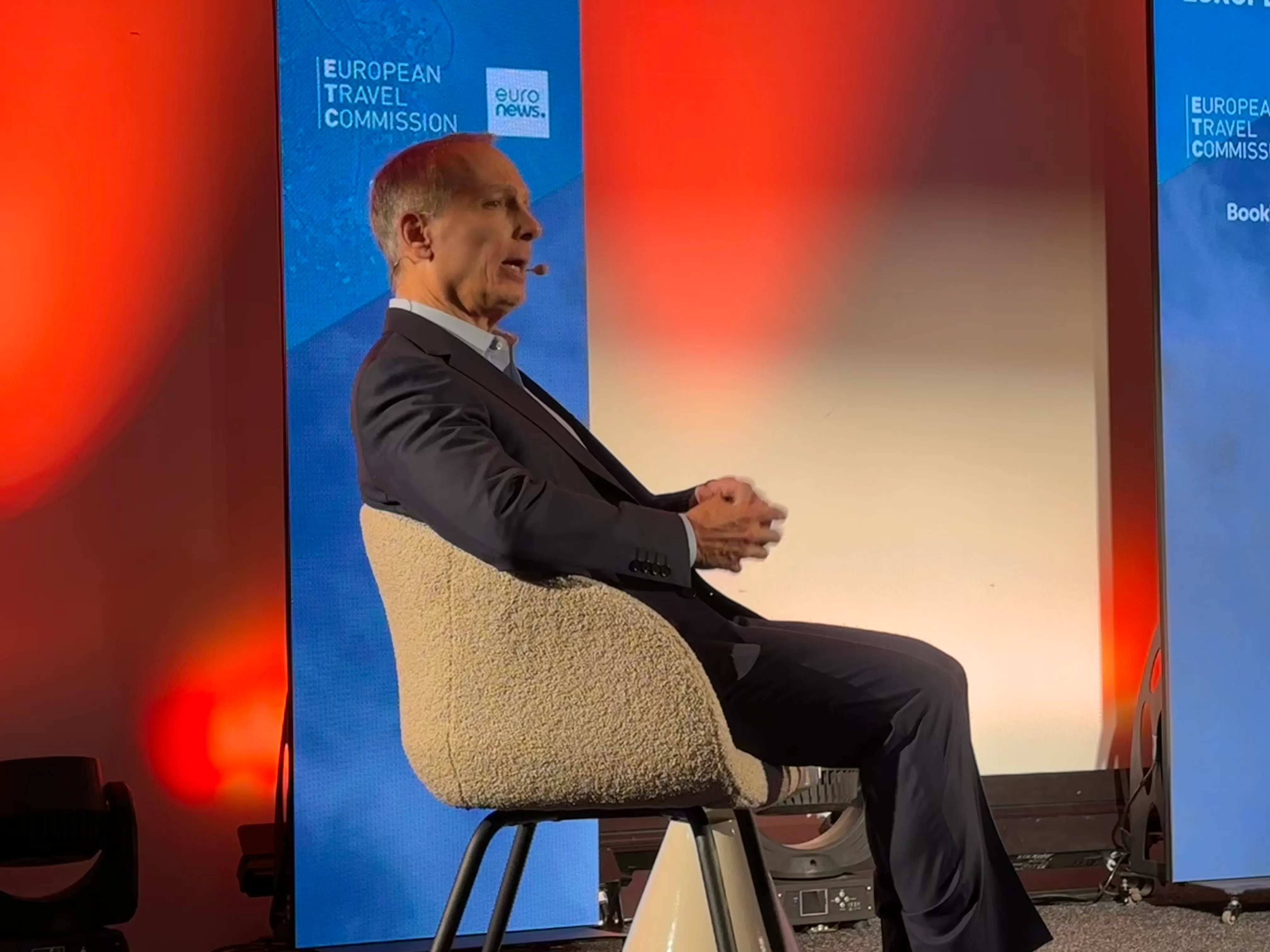How Digital Disruption Happens in Industries, the Travel Industry Edition

Skift Take
When Southwest CEO Gary Kelly spoke to CNBC last week on its biggest-loss-ever quarter, there was a moment when Kelly wanted to say the writing was on the wall, but didn't want to create panic. Watch that clip below couple of times and you'll see what I mean.
The subtext: Kelly knows this pivot-to-leisure-for-now in pandemic-induced lockdown could turn permanent for the ruthlessly efficient and forward looking airline, or at least for a long time to come, and it is ready to cannibalize itself first before anyone — or anything — else does.
"I'll bet you it's in a long time from now." Southwest Airlines CEO Gary Kelly says airplane travel will be completely back to normal -- at some point. Kelly's comments came as Southwest Airlines posted its biggest loss ever. https://t.co/qQ8Msjv8tr pic.twitter.com/3KOUT8MdjB
— CNBC (@CNBC) October 22, 2020
Now let's put all of this in context. About 25 years into the digital disruption that happened in almost all sectors of the global travel industry — read our Definitive Oral History Of Online Travel that we published in 2016 — there were a few major sectors of travel didn't go through the waves of disruption that most others sub-sectors of travel have since mid-'90s.
What happened to the travel agents and agencies with the advent of online travel booking services — huge initial disruption and then normalization decades later as a smaller sector — and the sectors that depended on them, airlines, hotels, destinations and more hadn't happened to some of the other key sectors in large enough or direct ways: corporate travel, meetings and events, tours and activities, cruises and the packaged tour operator sector.
The cruises and tours operators sector have different dynamics and for now don't have substitution products anyone has come up with even as they are completely shut during the pandemic. AND the distribution of these products which have been on a very slow burn change in last two decades hasn't yet been accelerated, at least not until these sectors reopen.
The tour and activities — the day tours — sector has seen acceleration of digital distribution last few years and in the pandemic has been largely shut, has come up with for-now-inferior substitution virtual tours products, so worth watching the potential acceleration of the already-ongoing disruption in years ahead.
But for the corporate travel sector and the related meetings and events sector that is hugely depended on business travel, the digital disruption has played out in a hyper-acceleration mode last few quarters. The cliche of a decade of change in 10 months is playing out in front of our eyes. I have written extensively on what's happening to the events industry here and here, and for the business of travel, I wrote this rather bombastic post on Tuesday that got a lot of pushback online.
As a former journalist in the Web 1.0 and 2.0 phases and now professional flame-thrower who happens to run Skift, I have watched seven giant industries go through the changes in the last two decades — newspapers, music and audio, movies & TV, gaming, books, visual media and desktop-to-mobile — here are some common lessons that are playing out for the corporate travel and meetings sector and potentially more travel sectors to come:
- As soon as digital distribution and adoption is injected into the ecosystem — in this case everyone has been forced into digital adoption — it changes the underlying economics especially when it comes to the pricing power, in this case free or cheap events, and free or almost free video calls, and lots and lots of them.
- The barriers to entry get lowered and everyone enters into it. The competitive set changes from incumbents competing amongst each other to incumbents against the world, in many cases competing against a completely changed consumer behavior. Take the case of rental cars vs ridehailing.
- The hype cycle comes in and a few years later the shakeout happens. Meanwhile billions of dollars move out of the incumbent sector and lots of jobs are lost.
- The analog dollars become digital pennies, as media executive Jeff Zucker famously said about advertising moving online, and at some point they become dimes, but it never comes back to the former glory in older formats. When it does come back to dollars, newer players like Netflix reformat the whole industry.
- The incumbents always resist the digital transformation and even mock the insurgents with damning quotable quotes, like the Jeff Bewkes example above.
- They always loudly proclaim no one wants this inferior digital experience and trot out evidence of current human behavior, which they are half right about: it is an inferior experience to start with, but it doesn’t remain after a period of innovation and change.
- The incumbents also loudly proclaim the cheaper economics won't work for the disruptors and often they don't -- disruptors are mostly subsidized by investor money -- but they do end up changing the consumer expectations forever and/or change the competitive set for everyone,
- The time any sector is going through digital disruption isn’t exactly a victimless crime period, there are consequences. The answer in the long term, as always, is always in the middle and the middle is billions and billions of dollars and tens of thousands of jobs less than what it was before. And those legacy billions will likely get shifted elsewhere as we have seen time and time again in digitally disrupted sectors.
- New disruptors emerge and larger companies go through lots of short term pain but most likely win out long term — in many cases by gobbling up the disruptors — if they have internalized the lessons of other industries.
- Lots of incumbent intermediaries in the industry get swept aside and the buyer and seller side go direct, until it doesn’t work or scale and new types of intermediaries emerge.
- Early innovators and disruptors mostly do not win long term, but the fast followers do.
- Incumbents have to be ready to cannibalize themselves to survive and thrive.
- Lots of venture and investor dollars are sunk into the sector, with lots of disappointment for most of the startups that fail.
- Lots of innovation comes out that looks like gimmicks in the short run and are subsumed in subsequent industry cycles and become the norm.
- Whoever best controls the largest amount of data is the biggest winner.
- Lots of new niches emerge, some become mainstream over a period of time.
- In the end, the end consumer always, always wins out. You can’t fight that force.
It is important to point out that none of the seven industries I reported on in previous decades died, it's that the incumbent players were simply shunted aside by new companies without the institutional bloat and interests that nearly always keep incumbents from advancing to the next thing.
New players will emerge, but connecting people in a business setting will always be a need, in fact may even be more important in a digitally overloaded world, whether through great editorial in a conference setting, through a great face to face pitch, or through buyer-and-seller matchmaking in various formats.
The potential good news for incumbents that persist through the disruption: Everyone forgets in the moment that in business, everything is cyclical, and the fate of business forever is bundling and unbundling over a period of time, even if they're put back together in different and potentially unrecognizable ways.
Format agnosticism is the key. Disrupting yourself before anyone else comes along is key. All the cliches are key, exceptions are outliers. Lots of experimentation and openness to failing a lot would be key to success for current incumbents.
Many aspects of the industry will likely move to digital formats but the need for physical interaction for the “last mile” may become even more important, even if it becomes a smaller venue — literally and metaphorically — where this happens.





